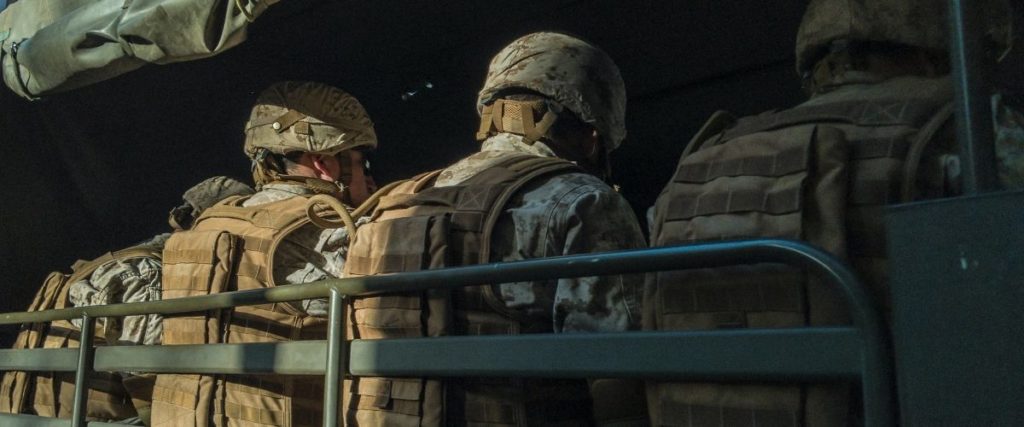On Tuesday, Australia and Japan reached a basic agreement on a joint defence pact that will deepen military cooperation between the two countries.
The pact, known as the Reciprocal Access Agreement (RAA), will pave the way for Australian and Japanese military troops to have access to each other’s bases for training and joint operations and is the product of six years of negotiation.
Why it matters: With Australia and Japan both being staunch US allies, the deal could potentially be seen by Beijing as an attempt to counter China’s growing power in Asia Pacific.
• The Chinese government has yet to formally respond to the announcement of the agreement. However, The Global Times, a Chinese state media outlet, criticised the agreement, referring to Japan and Australia as “US tools” and suggesting that the agreement “further accelerates the confrontational atmosphere in the Asia-Pacific region”.
• Rising tensions with China could play a hand in determining further negative trade actions against Australia and Japan. Australia has already been hit hard by Chinese restrictions this year – up to USD 19 billion annually – as a result of China imposing significant tariffs on barley, beef, cotton, coal, and wine, according to the Guardian.
The big picture: Southeast Asian countries are making more of an effort to form stronger ties with each other to counter China’s growing influence.
• Last week, 15 APAC countries, including Japan, Australia, and China, signed the Regional Comprehensive Economic Partnership, intended to boost trade between the countries by reducing tariffs on imports and establishing common ground on intellectual property and trade.
• Japanese Prime Minister Yoshihide Suga has also stepped up efforts in foreign relations following his appointment in September. Last month, his meeting with the “Quad” – Japan, India, Australia and the United States – was symbolic of his proactiveness to establish multilateral cooperation, and he also later visited Vietnam and Indonesia to strengthen bilateral economic and defence ties. Japan has long used its defensive military capabilities to secure a stronger political foothold in the region.
The agreement: A statement on the Australian Prime Minister’s official website stated that the partnership between the two countries is based on “a commitment to democracy, human rights, free trade and a rules-based order; shared strategic interests in the security, stability and prosperity of the Indo-Pacific region and beyond; and deep economic complementarity.”
• The deal also reaffirms a commitment to fighting the COVID-19 pandemic together to mitigate the devastating economic consequences that have arisen as a result of the virus. As of today, 1895 and 907 people have died from COVID-19 in Japan and Australia, respectively.
• The two countries expressed their concerns over conflicts regarding several countries’ territorial claims over the South China Sea, the loudest of which come from China. The press release denounced the “continuing militarisation of disputed features, dangerous and coercive use of coast guard vessels and ‘maritime militia’, launches of ballistic missiles, and efforts to disrupt other countries’ resource exploitation activities” in the region. Back in August, China fired two ballistic warning missiles in the region a day after an American spy plane reportedly drifted close to a Chinese naval drill.
• Two countries have also emphasised the importance of Hong Kong maintaining its democratic processes and institutions and upholding the high degree of autonomy granted by the Basic Law and Sino-British Joint Declaration. The city, which is a special administrative region of China, became a political hotspot last year over China’s inconsistent “one country, two systems” policy, which eroded democratic and press freedoms.
• According to The Diplomat, the two leaders also agreed to enhance cooperation in tackling the growing issue of climate change. At a joint news conference, Morrison told reporters that the two countries were “working together for a lower emission and zero-emission future.”
Looking ahead: It remains to be seen how Beijing will respond to news of the agreement. The Global Times wrote that “They [Australia and Japan] will surely pay a corresponding price if China’s national interests are infringed upon and its security is threatened.”
• US Secretary of State Mike Pompeo lambasted China at last month’s Quad forum, accusing Beijing of “exploitation, corruption, and coercion.” US foreign policy may shift slightly in January when president-elect Joe Biden comes into power. However, analysts have suggested that US foreign policy will remain hawkish.
• Australian PM Morrison has personally invited Suga to visit Australia sometime next year to formally sign the agreement. He was the first foreign leader to be hosted by Suga since the Japanese prime minister assumed the role in September.
Related Articles
15 APAC Countries Sign World’s Largest Trade Deal Worth USD 186 Billion
Stock Markets Surge As Moderna’s Vaccine Results Show 94.5% Efficacy





